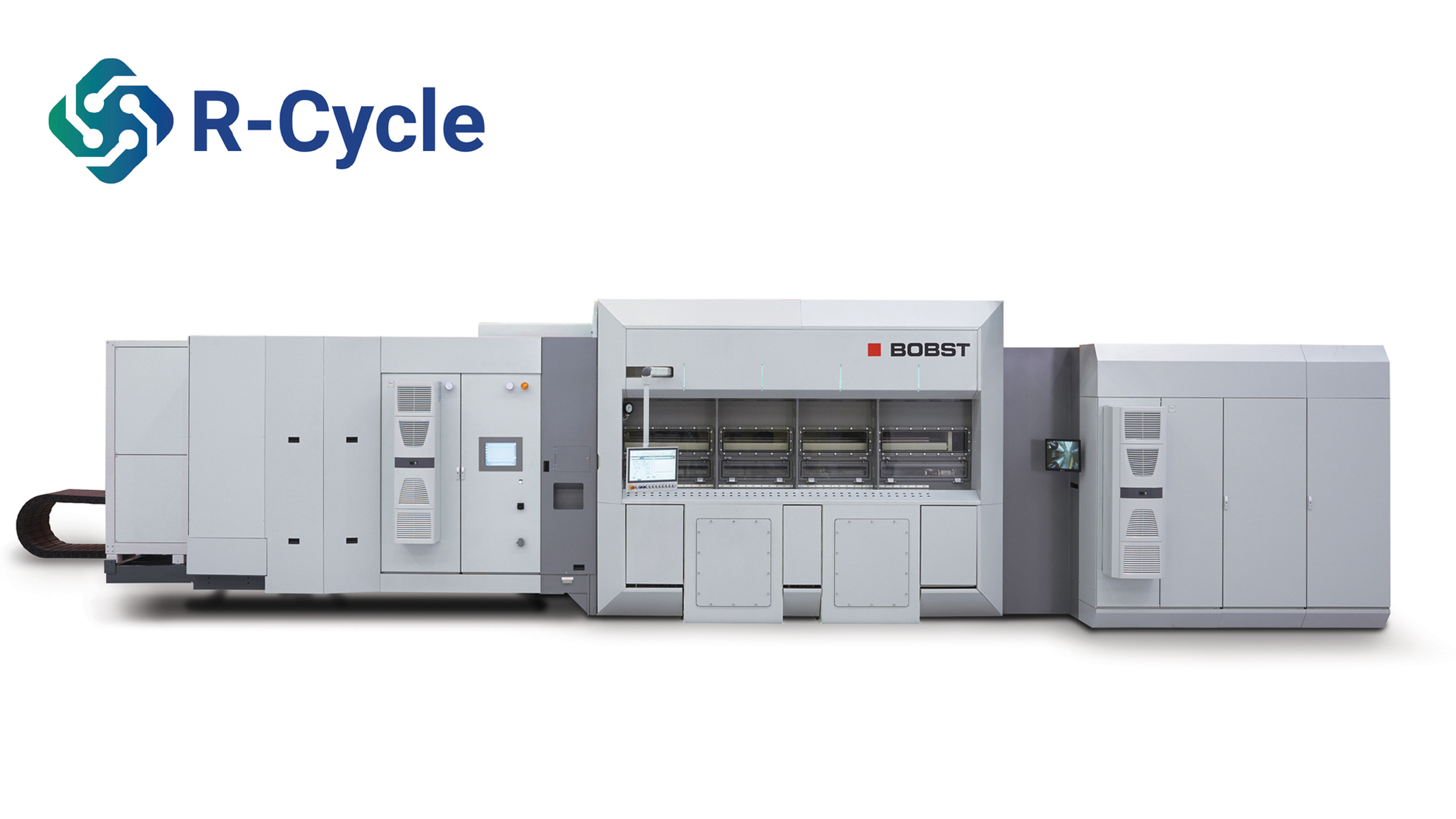 BOBST has recently launched a pilot project aimed at promoting the industry move towards a circular economy.
BOBST has recently launched a pilot project aimed at promoting the industry move towards a circular economy.
The project is part of the R-Cycle initiative, a cross industry consortium working on developing a globally applicable tracing standard to automatically record and store on a common data platform recycling-relevant information along the flexible packaging production value chain.
“Our commitment to achieving circularity is very strong and all-encompassing, from sustainable substrates and process development, through to their machinability during printing and converting, and of course their end of life” explained Nick Copeland, R&D Director Barrier Solutions at BOBST “There is great potential in the recyclability of the new mono-material packaging solutions, but we need to support the industry and overcome the challenge of identifying them at the sorting stream, otherwise most benefits will be lost”.
The current difficulties in sorting flexible packaging often result in downcycling or sending to the incinerator or landfill high quantities of material that could be recycled. The aim of the project is to store production data in so-called Digital Product Passports (DPP) and make the information usable for recycling the end products. This approach enables more precise waste sorting and thus the recovery of high-quality recyclates, supporting a functioning circular economy.
BOBST will carry out the first R-Cycle data standard trial run on a BOBST EXPERT K5 vacuum metallizer at its R&D Center of Excellence for barrier solutions in Manchester, UK.
“The R-Cycle initiative brings together the topics of sustainability, connectivity and digitalization, which are three of the four pillars of the BOBST vision for the future of flexible packaging, so the scope of this project is perfectly suited to our commitment to advancing flexible packaging circularity. It is also a significant building block in digitalization for even more efficient production processes. We believe it is an important step forward in achieving better circularity for flexible packaging” concluded Nick Copeland.
www.bobst.com
























































































